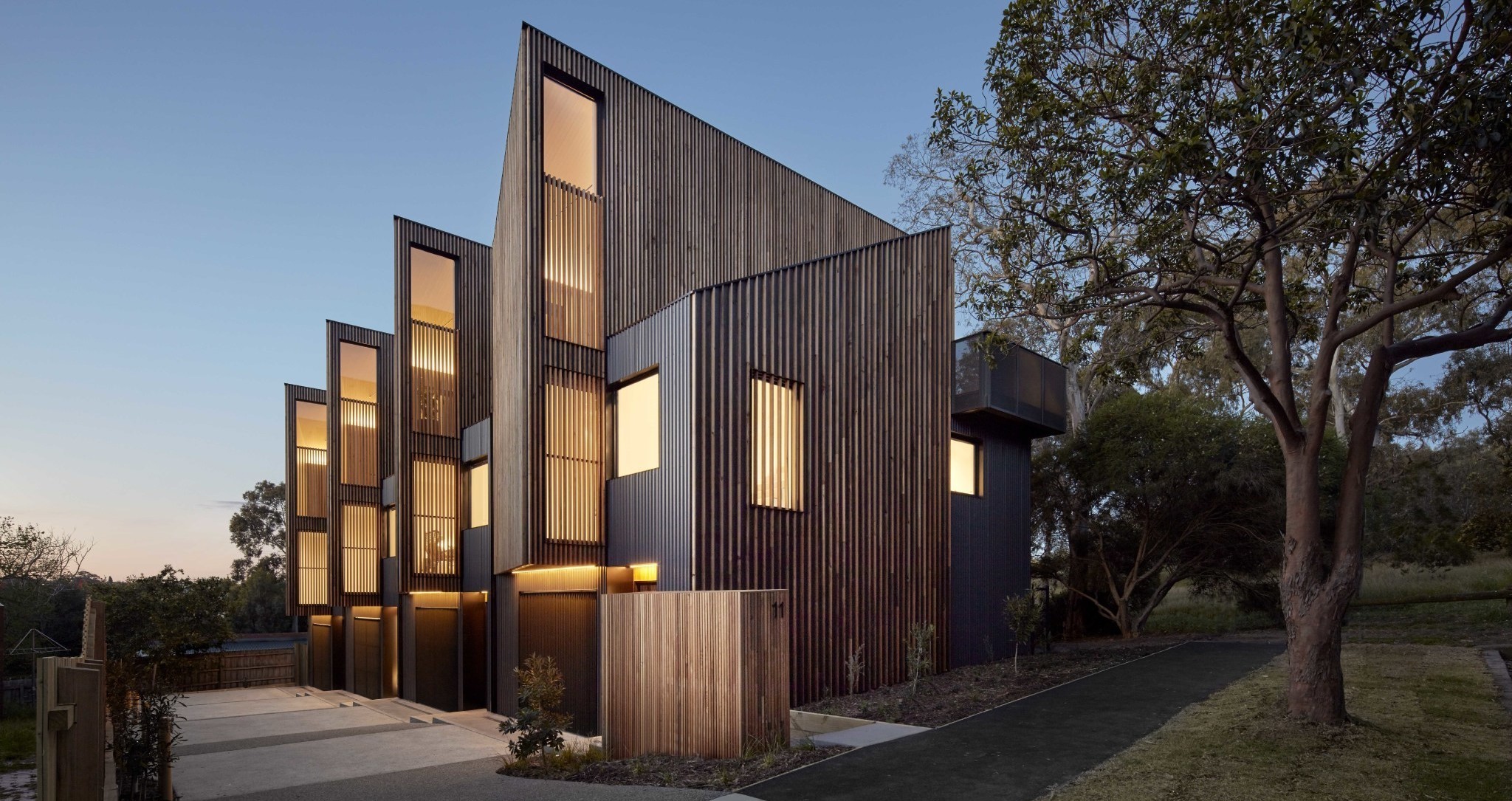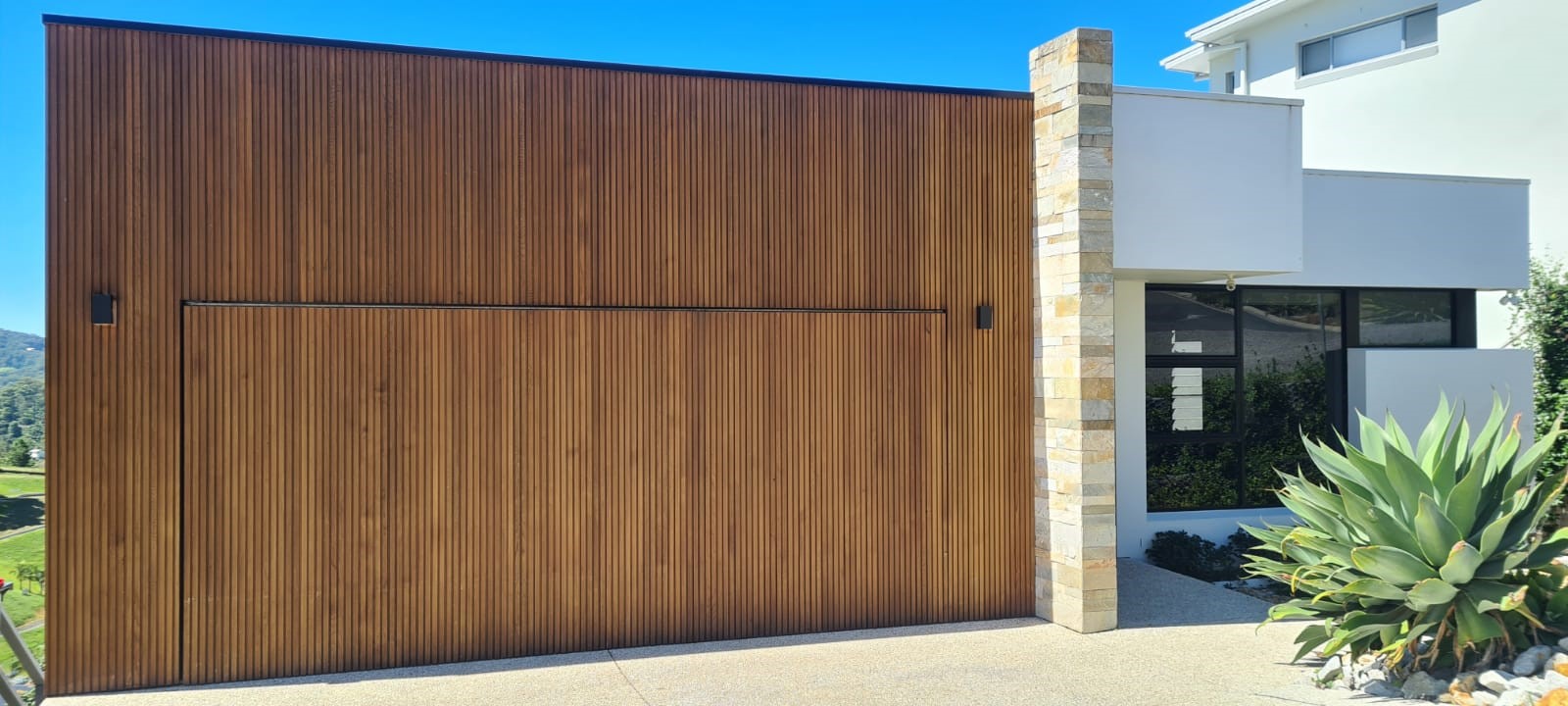
Hardwood vs Softwood: Pros, cons & best uses
Hardwood vs softwood, what do you need to know before making your choice for your next cladding, panelling, or decking project?
Timber is classified as either hardwood or softwood depending on its physical makeup. The characteristics of each timber varies from appearance, to density, and workability.
What is the Difference Between Hardwood and Softwood?
The main difference between hardwood and softwood is that hardwood trees are typically slower growers and are considered angiosperm, deciduous trees (shed their leaves annually), which leads to a denser wood, whereas softwood trees are gymnosperms, meaning they are evergreen trees (do not shed their leaves).
The definition and classification of whether a tree is considered a hardwood or softwood comes down to the seed they produce, not the density of the timber.
Are you unsure which timber will work for your project? Identifying the differences between hardwood and softwood, the pros and cons, and where each timber works best, will point you in the right direction.
| Category | Hardwood Timber | Softwood Timber |
|---|---|---|
| Growth | Hardwood trees are slower growers and are considered angiosperm, deciduous trees (shed their leaves annually). | Softwood trees are conifers and gymnosperms, meaning they are evergreen trees that do not shed their leaves. |
| Density / Durability | As the name suggests, hardwood timber species are durable, high quality and offer a long-lasting option for multiple purposes. | The lower density of softwood timber means it’s weaker and less durable than hardwood, however there are some ‘hard’ softwood options with a higher density like Juniper and Yew. |
| Applications | Hardwood is commonly used for flooring, but can also be used for cladding, panelling, buildings, fencing, boats and outdoor decks. | Softwood timber is commonly used for feature walls, ceilings, furniture, doors and windows. |
| Species | Eucalyptus, Balsa, Mahogany, Blackbutt, Red Ironbark and Spotted Gum are all examples of popular hardwood timber species. | Cedar, Douglas fir, Juniper, Yew, Pine and Hemlock are all examples of popular softwood timber species. |
| Sustainability | Whilst hardwoods aren’t as renewable as softwoods, due to their long-lasting nature hardwood timbers can be a well-considered choice given their durability. | Softwood trees grow much faster than hardwood and are considered a very renewable source. |
| Appearance | Hardwood timber is available in a range of colours, finishes, and will suit almost any contemporary style setting. | Softwood is a versatile timber option that offers a stunning, seamless finish. It has great workability, making it suitable for a range of applications and styles. |
| Maintenance | Due to its durable nature, hardwood timber is easy to clean, whilst scratches and dents can be fixed with ease. | As softwood timber is less durable than hardwood, more regular maintenance will be required to ensure its longevity. |
| Cost | Hardwoods are generally more expensive due to their slower rate of growth and durable properties, but can be worthwhile in the long-run as they are low maintenance and long lasting. | Softwood timbers can be cheaper than hardwood timbers, as they are faster growers and easier to source. |
What is Hardwood Timber?
Authentic hardwood timber is praised for its unprecedented style and performance. Hardwood comes from angiosperm trees, which have elements that distribute water and nutrients throughout the wood. The pores in the wood grain handle all the distribution, allowing the remaining timber grain to become denser.
What are Some Examples of Hardwoods?
Hardwood trees are deciduous, and species include:
- Eucalyptus
- Balsa
- Mahogany
- Blackbutt
- Spotted Gum

Some Of Our Popular Hardwood Cladding & Decking Timber Products

Newport Channel Cladding
In addition to precision-machined tongue and groove profiles, the Newport Beechgrove Cladding system features proprietary corner stops and end trims – all manufactured from naturally-durable Australian hardwoods.

Decking Instyle
InStyle natural timber decking solutions from Modinex offer head-turning elegance and practicality. Benefit from the timeless natural beauty of real timber, attention to detail and a sophisticated modern finish.

Decking Pencil Round
Stylish, traditional and versatile. Our Pencil Round Decking solution from Urbanline Architectural, offers traditional style, but with timeless practicality.
What are the Characteristics of Hardwood?
Pros & Advantages of Hardwood:
- Longevity: Hardwood produces a very high quality product that offers great durability over time.
- Easy maintenance: Hardwood is easy to clean, and scratches and dents can be fixed.
- Strength: The trees’ dense cellular structure gives the timber incredible strength.
- Appearance: Hardwood timber is available in a range of colours and finishes, and will suit almost any contemporary style setting.
- Fire resistance: Hardwood timber offers a higher fire resistance than softwood.
Cons & Disadvantages of Hardwood:
- Slow growth rate: Hardwood forests take longer to replenish due to the tree’s slower growth rate.
- Workability: Due to its density, hardwood tends to be a lot harder to work with during construction.
- Cost: Hardwoods are generally more expensive, however in saying this, you get what you pay for.
- Refinishing: Hardwood floors in high traffic areas will require refinishing down the track, which can also be quite costly.
What is Softwood Timber?
Softwood is a versatile timber option that offers a stunning, seamless finish. Softwood comes from gymnosperm trees, which do not have pores, but instead rely on medullary rays and tracheids to transport water and produce sap. This characteristic gives softwood a lower density.
What are Some Examples of Softwoods?
Softwood trees are evergreen, and species include:
- Cedar
- Douglas fir
- Pine
- Hemlock

Some Of Our Popular Softwood Feature Wall & Ceiling Products

Castelation®
The Castelation profile complements contemporary design trends in commercial and residential buildings. Continuous channels and shadowlines achieve a multi-dimensional timber batten look that is efficient and reliable.

Shiplap
Perfect lines as far as the eye can see. Our Shiplap boards are profiled to produce an overlap, which allows for a continuous cladding look and uninterrupted, clean lines.

Vee-Joint
Classic. Versatile. Seamless. A mainstay in traditional colonial homes, VJ paneling has enjoyed a renaissance, becoming a popular choice in many modern, architecturally-designed homes and commercial spaces.
What are the Characteristics of Softwood?
Pros & Advantages of Softwood:
- Workability: Softwood is easier to work with and can be used across a broad range of applications.
- Sustainability: Softwood trees grow much faster than hardwood, and are considered a very renewable source.
- Cost: These timbers tend to be cheaper, as they’re easier to source.
Cons & Disadvatages of Softwood:
- Density: The lower density of softwood timber means it’s weaker and less durable, however there are some ‘hard’ softwood options with a higher density like Juniper and Yew.
- Longevity: Softwood is less suitable for high traffic areas as it does not wear as well as hardwood over time.
- Fire resistance: Softwoods tend to have poor fire resistance unless treated.

What is Hardwood Timber used for?
Hardwood is most commonly used for flooring, but can also be used for a range of things including cladding, panelling, buildings, fencing, boats and outdoor decks.
It works well in residential and commercial projects, and can be used for indoor or outdoor application. Hardwood is used when durability and strength are of upmost importance.

What is Softwood Timber used for?
Softwood timber is most commonly used for feature walls, ceilings, furniture, doors and windows. It’s a versatile building material, offers a beautiful finish, and can be used to create stunning features for residential and commercial projects.
Hardwood vs Softwood
At Urbanline, our quality selection of real timber solutions consists of a wide range of both hardwoods and softwoods, perfect for cladding, decking and panelling. Our selection of hardwood species includes Blackbutt, Red Ironbark, Spotted Gum, Jarrah and more. While our softwood selection consists of Western Red Cedar and Western Hemlock. Our panelling and cladding options are available in a range of hardwood timbers to suit commercial and residential projects. Jarrah and spotted gum offer weather, fire and termite resistance, making either a great option for outdoor uses including wharf and bridge construction. Hemlock and Western Red Cedar serve purposefully as creative cladding interiors and exteriors. Choose from a range of softwood timber cladding options for contemporary feature walls and ceilings. When choosing the right hardwood or softwood timber for the job, think about what you’d like to achieve in the short and long term future. Both types of timber offer impressive construction benefits across a wide range of applications.



Hardwood Timber vs Softwood Timber FAQs
Can You Change The Colour Of Hardwood?
Yes, you can change the colour of your hardwood decking or flooring by re-staining to lighter or darker wood tones. When doing this make sure you test a small section to see how the stain affects the wood before finalising your colour selection.
Is Softwood More Environmentally Friendly Than Hardwood?
Softwood timber is considered more renewable and sustainable than Hardwood timber because it grows at a faster rate however hardwood is more durable and lasts longer.
Is Pine A Hardwood Or Softwood?
Yes, pine is considered a softwood
Is Cedar A Hardwood Or Softwood?
No, cedar is not considered a hardwood and is actually a softwood. Cedar, specifically Western Red Cedar, is often used for cladding, screening, and decking
Is Mahogany A Hardwood or Softwood?
Mahogany is classified as a hardwood and is commonly used for furniture, boating equipment, and musical instruments.
Are Softwoods Weaker Than Hardwoods?
Hardwoods are generally considered more durable than softwoods due to their condensed structure however there are still softwoods that offer the same ‘hard’ qualities that are suitable for projects with less exposure to general foot traffic.
What is the softest hardwood?
Balsa wood is considered the softest hardwood as it has the lowest rating on the Janka hardness scale.
What is the hardest softwood?
Yellow pine and aromatic red cedar trees are often considered two of the strongest hardwoods, with the Juniper and Yew species often being referred to amongst the hardest softwoods.
What is the best softwood?
With softwood’s sustainable, versatile and cost-effective qualities, it is a popular choice among many builders and designers alike. At Urbanline, two of our most popular softwood options are Western Red Cedar and Hemlock timber.
What is the best hardwood?
Perfect for durable decking and cladding, at Urbanline we often recommend hardwoods such as Red Ironbark, Spotted Gum and Blackbutt.
How fast does softwood grow?
Softwood timber is often favoured due to its sustainable and fast-growing nature compared to hardwood, as softwood trees could fully grow in as little as 25 years, depending on the environment.
How fast does hardwood grow?
Hardwood trees are slow growing, which results in a denser timber. They could take up to 100 years or more to completely grow, depending on their environment.
Get in Touch With Modinex Today
Want more advice before making your hardwood timber or softwood timber selection? Talk to our expert team today to find out more, or to receive a quote for your project.